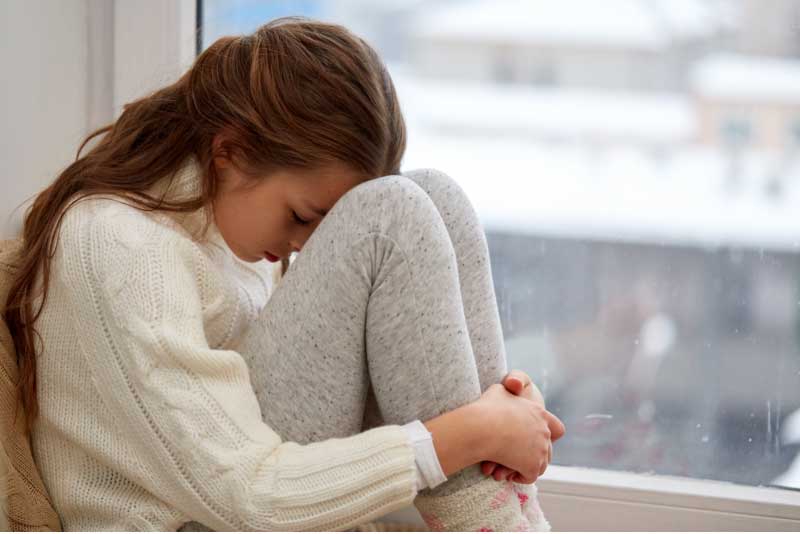If we’ve learnt anything from the last two years, it would likely be the fragility of our minds, and how major life changes or unexpected situations can sometimes send our mental wellbeing into a negative spiral.
Suffering from mental health issues is a prevalent concern for many across the country, whether this be students studying for exams, parents struggling to manage depression, or individuals battling the emotional impact of Covid-19.
Whatever the situation, this will become the focus of Mental Health Awareness Week 2022, a campaign that aims to broaden people’s understanding of good mental health and suggest supportive measures to help combat some of the more commonly experienced issues.
What is Mental Health Awareness Week?
This week-long campaign is run by the Mental Health Foundation, which conducts research into some of the most pressing issues suffered by many people across the country. They’ve championed real change in the way mental health is approached, by creating a platform for people to connect with like-minded individuals and gain a greater sense of reassurance that they’re never alone.
Every year, Mental Health Awareness Week amplifies its efforts, and has done since it began 21 years ago. With a core theme and various activities being held, both in the UK and globally, this has shaped a worldwide community to help address some key topics for discussion concerning mental wellbeing.
What is The Theme for Mental Health Awareness Week 2022?
Throughout the pandemic, many of us were required to isolate upon testing positive for COVID-19, and although many benefit from the comfort of family members being present at home, this wasn’t the case for everyone.
Long periods of loneliness were experienced by those who live alone, and for some, this has been a frequent occurrence.
Loneliness and isolation have therefore become the focus of this year’s campaign, highlighting the need to rebuild relationships and rekindle a sense of community as we start to return to a more familiar way of living.
What Causes Loneliness?
Many factors contribute to the feeling of loneliness, and these typically include:
- Bereavement
- Starting a new job
- Losing touch with friends or family members
- Moving somewhere new
- Financial struggles
- Discrimination
- Poor social skills
The feeling of loneliness is widespread across the country and is expected to keep growing, with an estimated 2 million increase by 2025/6 for people over 50 who believe this to be an issue for them. This could see a 49% increase from the 1.4 million recorded in 2016/17.
Loneliness has also been attributed to an increase in the experience of heart attacks, angina or heart diseases, with rises sometimes reaching 29%. Your risk of suffering from a stroke can also increase by 32%.
What Can You Do For Mental Health Awareness Week?
Just like many campaigns that aim to improve awareness, getting involved is actively encouraged. Below are just two ways in which you can play a part or help to promote Mental Health Awareness Week 2022.
Loneliness School Pack
Research and lived experience show that a lack of meaningful relationships in our lives can lead to loneliness, which is considered to have a detrimental effect on academic performance. The information in this pack has been designed to help break down loneliness particularly amongst secondary school students, with suggestions to help stay connected.
The pack contains lesson plans and worksheets to help create better engagement between students and tackle the subject of loneliness. Posters are also provided to be put up around schools to enforce key messages and help students feel as though their struggles are being addressed.
Wear it Green Day
As the primary event of this year’s awareness campaign, this will be the driving force for crucial fundraising to support future awareness activity and resources. To show your support is simple. All you need to do to is to pop on your green ribbon.
If you are keen to take things further, you can order an official Wear it Green Day fundraising pack, containing ideas, resources and tips to make sure you get the most from this event.
How to Combat Loneliness
Campaigns such as this bring more attention to the effects of loneliness. Thankfully, there are some really simple steps you can take to start beating its effects.
Focus on Yourself
Sometimes your mind can become your own worst enemy. At times like this it can be tempting to compare your own life with the lives of others, but this can be both destructive and misleading. Social media, for example, has given people the means to create an airbrushed persona online. It can be easy to consider others to be more prosperous, more successful, more popular, but be aware that these profiles could well be a false representation of reality.
Keep Connected
Even walking around your local park can help you feel the benefit of being among other people. If you are someone who struggles to make friends, it is worthwhile seeking out local clubs where you are likely to meet like-minded individuals with shared interests, making it easier to converse on topics you are familiar with.
Make sure you keep family members or close friends within your inner circle. If you feel comfortable, reach out to see if they’re happy to meet up socially.
Don’t Rush
When you experience loneliness, it can be easy to become distressed or even panicky and to think irrationally. Try to take a step back and introduce changes gradually to avoid rushing headlong into poorly judged decisions, which could take a further toll on your mental health and wellbeing. Take things day by day, just trying to introduce one positive change, or stop one negative behaviour, each day to make you feel better about yourself and enable you to move forward
If you feel you need further help with loneliness, depression or anxiety, you can arrange an appointment with one of our consultants, or find out more about the therapeutic services available within our wider group.






Leave A Comment